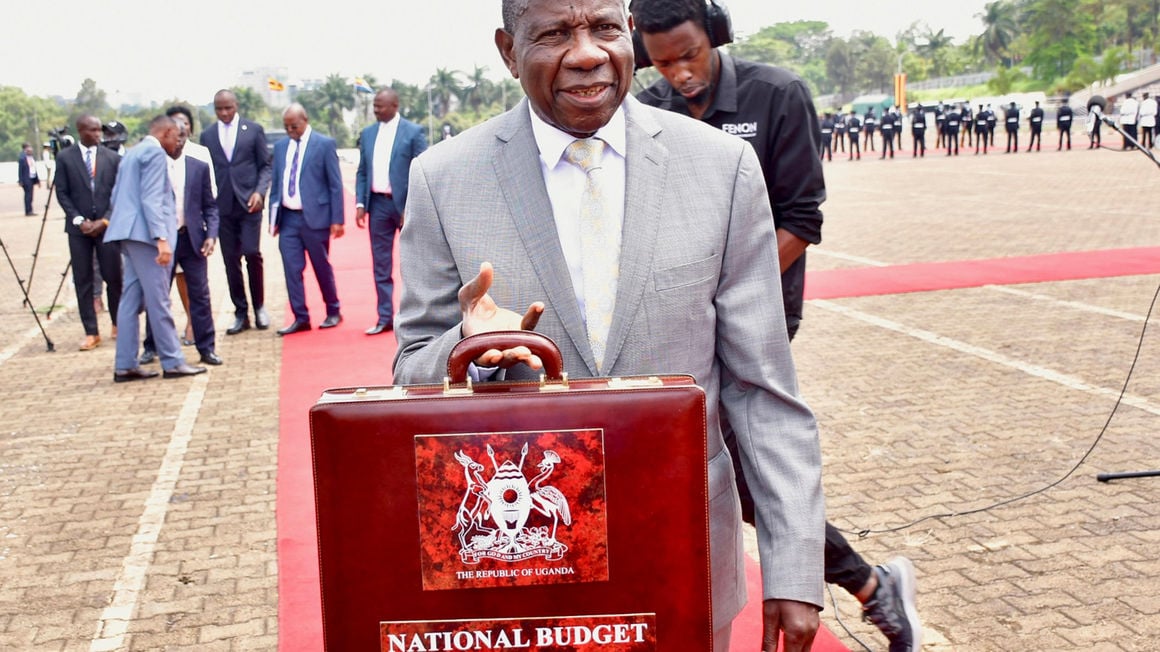Summary:
- Uganda will reduce commercial borrowing and focus on concessional loans next fiscal year to manage rising debt, Finance Minister Matia Kasaija announced. Public debt is expected to reach $25.7 billion by the end of June, with debt servicing costs projected to consume 40.3% of domestic revenue. The government aims to support economic growth, driven by upcoming oil production, while planning a $19.4 billion budget including major infrastructure projects.
KAMPALA, (Examiner) – Uganda’s Finance Minister Matia Kasaija announced on Thursday that the country plans to curb commercial borrowing and focus on concessional loans in the next fiscal year to manage its growing debt. This move comes after a recent credit rating downgrade by Moody’s in May.
During a budget presentation at the Kololo airstrip in Kampala, Kasaija revealed that Uganda’s total public debt stood at $24.7 billion at the end of last year and is expected to reach $25.7 billion by the end of this month. The downgrade by Moody’s was attributed to increasingly limited financing options.
Debt servicing costs, excluding domestic debt redemptions, are projected to consume 40.3% of domestic revenue in the upcoming fiscal year, up from 33.4% in the current year. Despite these financial strains, the government has continued to borrow to fund significant infrastructure projects under President Yoweri Museveni’s administration.
Let Us Build Your Online Success!
We are the experts in creating visually stunning and functional websites. With reliable hosting and exceptional customer support, we bring your vision to life. Join hundreds of happy clients who trust us!
Get Started Now📞 Call/WhatsApp: +256 207 800 192
Kasaija stated that Uganda’s economy is anticipated to grow between 6.4% and 7% in the next fiscal year, driven by oil and gas activities ahead of planned crude oil production starting in 2025/26. The budget deficit is expected to rise to 5.7% of GDP next fiscal year from 4.5% this year.
The government’s budget for the next fiscal year is Ush72.1 trillion ($19.4 billion), which includes major projects like the $2.2 billion standard gauge railway to reduce international trade costs and the $5 billion East African Crude Oil Pipeline to facilitate oil exports via Tanzania.
“Uganda’s economy has fully recovered from various external and internal shocks over the past four years,” Kasaija noted, emphasizing the need to manage debt to sustain this growth trajectory.

